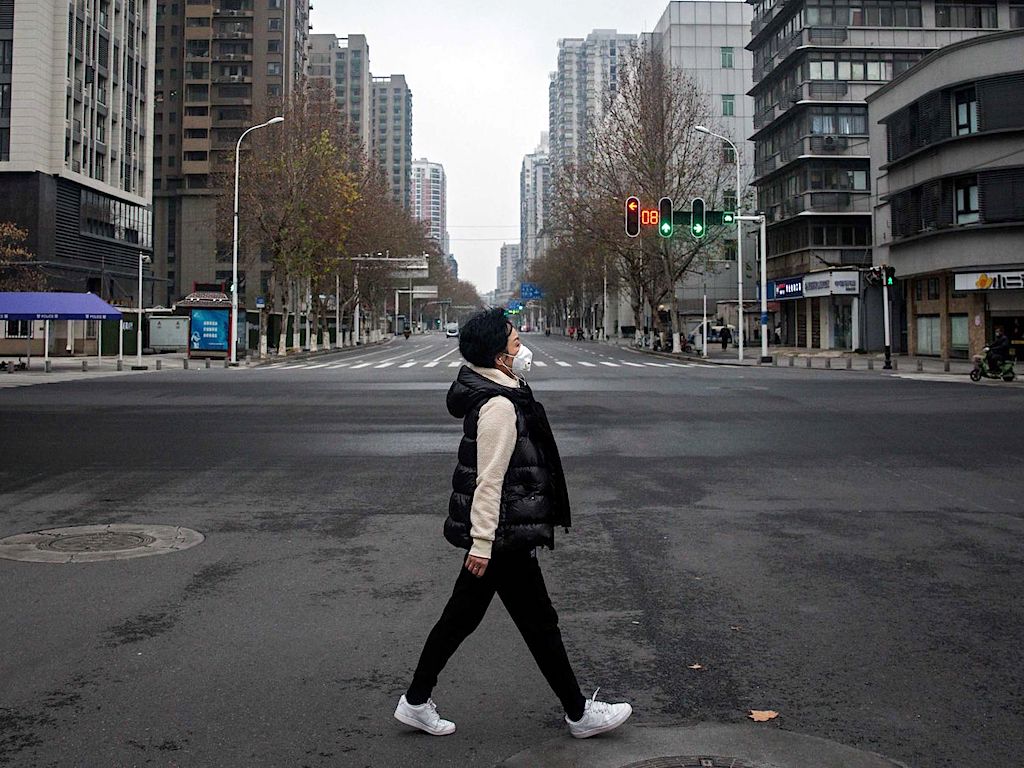3 Mins Read
As China continues to battle the spread of Covid-19, the world’s biggest polluter’s electricity demand and industrial output has taken a tumble, and it’s not just the economy. on The country’s carbon emissions have plummeted. With transportation links and cities coming to a virtual standstill, and people mostly stuck at home in efforts to fight the deadly epidemic, China’s carbon emissions have been slashed by an astonishing 100 million metric tonnes. But experts say the reduction will likely be a temporary consequence.
The novel coronavirus outbreak has had an immense impact on the world, with the death toll surpassing 2,000 and total cases rising to over 74,000 as of press time. In order to contain the deadly epidemic, China has implemented strict travel restrictions, firms have lengthened holidays and cities coming to a virtual standstill have yet to recover from the lull since the Lunar New Year.
According to global nonprofit Carbon Brief, the lowered economic activity, industrial output and dramatically reduced electricity demand has led to a massive cut in the country’s carbon emissions by an estimated 100 million metric tonnes – comparable to Chile’s annual emissions.
Carbon Brief’s report examined emissions during the two-week period beginning 10 days after the beginning of the Lunar New Year, and compared it to data on the same period for each year in the past 5 years. In 2019 during this period, China emitted 400 million metric tonnes of carbon dioxide, while this year’s figure is closer to 300 million metric tonnes.
Experts say the key reasons underpinning lower emissions is a dramatic reduction in the use of fossil fuels in China, the world’s biggest user of coal – the dirtiest of fossil fuels – since 2011. According to the analysis, China’s coal consumption has fallen to a four-year low, much of it due to the lower output from oil refineries, power generation and steel manufacturing as a result of the epidemic.
While the short-term cut in emissions is good news for the planet, as the world’s greenhouse gases must be slashed in order to fight the climate crisis, experts caution against over-optimism. Despite the decline in China’s productivity in its efforts to fight the novel coronavirus, the country still has huge capacity in power generation and industrial activity to significantly drive up output once infection rates and protective regulations ease.
According to research figures from Bloomberg, China’s emissions could also rapidly increase because of the central authorities’ planned infrastructure-targeted stimulus package, which will require the country to sustain its regular levels of coal use and increase its production in its cement and steel industries.
This means that although the coronavirus has driven down greenhouse gases from the world’s largest polluter, there is much left to do if we are to combat the pressing threat of climate change. Just last month, the Earth experienced its hottest January ever recorded by the National Oceanic and Atmospheric Administration (NOAA) in history, continuing the accelerating trend of rising temperatures – and this is in spite of the fact that China’s emissions have fallen in that period.
As anthropogenic climate change continues to show no signs of decline, it is vital that we do not become complacent in our efforts to slash emissions, especially as scientists have reiterated the cascading and interlinked social, environmental, economic and human security threats that climate disasters will bring if global heating is left unabated.
Read our earlier coverage of Covid-19 and tips on prevention here.
Lead image courtesy of Stringer / Getty Images.




